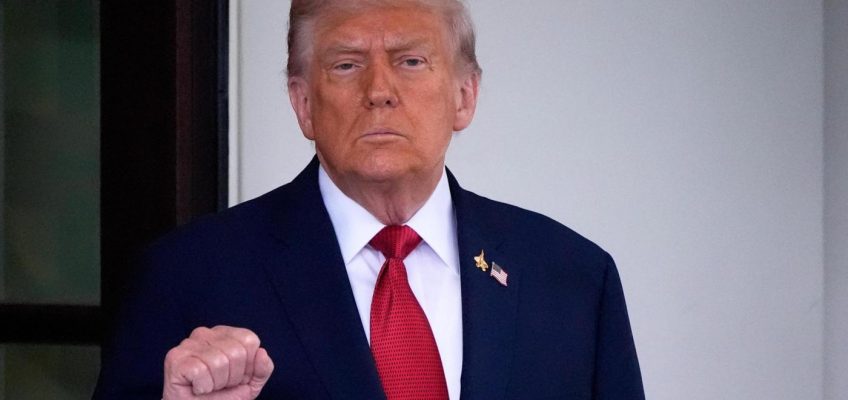By JOSH BOAK, Associated Press
WASHINGTON (AP) — President Donald Trump said Thursday that he will put import taxes of 100% on pharmaceutical drugs, 50% on kitchen cabinets and bathroom vanities, 30% on upholstered furniture and 25% on heavy trucks starting on Oct. 1.
Related Articles
Ex-FBI Director James Comey charged with making false statement, obstruction, AP source says
Trump says he will not allow Israel to annex the West Bank
Trump signs executive order supporting proposed deal to put TikTok under US ownership
Trump officials urge nations to join effort to restrict asylum system as advocates brace for impact
Justice Department sues Minnesota, 5 other states in its quest for voter data
The posts on his social media site showed that Trump’s devotion to tariffs did not end with the trade frameworks and import taxes that were launched in August, a reflection of the president’s confidence that taxes will help to reduce the government’s budget deficit while increasing domestic manufacturing. But the additional tariffs risk intensifying inflation that is already elevated, as well as slowing economic growth, as employers getting acclimated to Trump’s previous import taxes grapple with new levels of uncertainty.
“We have begun to see goods prices showing through into higher inflation,” Federal Reserve Chair Jerome Powell warned in a recent news conference, adding that higher costs for goods account for “most” or potentially “all” of the increase in inflation levels this year.
Trump said on Truth Social that the pharmaceutical tariffs would not apply to companies that are building manufacturing plants in the United States, which he defined as either “breaking ground” or being “under construction.” It was unclear how the tariffs would apply to companies that already have factories in the U.S.
In 2024, America imported nearly $233 billion in pharmaceutical and medicinal products, according to the Census Bureau. The prospect of prices doubling for some medicines could send shock waves to voters as health care expenses, as well as the costs of Medicare and Medicaid, potentially increase.
Trump said that foreign manufacturers of furniture and cabinetry were flooding the United States with their products and that tariffs must be applied “for National Security and other reasons.” The new tariffs on cabinetry could further increase the costs for homebuilders at a time when many people seeking to buy a house feel priced out by the mix of housing shortages and high mortgage rates.
Trump said that foreign-made heavy trucks and parts are hurting domestic producers.
“Large Truck Company Manufacturers, such as Peterbilt, Kenworth, Freightliner, Mack Trucks, and others, will be protected from the onslaught of outside interruptions,” Trump posted.
Trump has long maintained that tariffs are the key to forcing companies to invest more in domestic factories. He has dismissed fears that importers would simply pass along much of the cost of the taxes to consumers and businesses in the form of higher prices.
The president continues to claim that inflation is no longer a challenge for the U.S. economy, despite evidence to the contrary. The consumer price index has increased 2.9% over the past 12 months, up from an annual pace of 2.3% in April, when Trump first launched a sweeping set of import taxes.
Nor is there evidence that the tariffs are creating factory jobs or more construction of manufacturing facilities. Since April, the Bureau of Labor Statistics has reported that manufacturers cut 42,000 jobs and builders have downsized by 8,000.
“There’s no inflation,” Trump told reporters Thursday. “We’re having unbelievable success.”


Leave a Reply